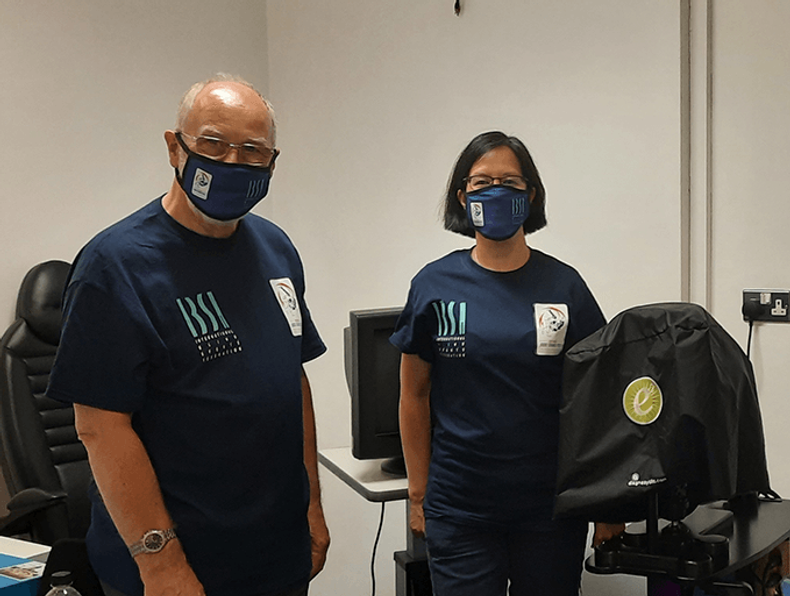Judo Paralympic hopefuls sight tested at university

Judo Paralympians and other athletes have visited Aston University 's Eye Clinic, in order to gain their sight classification ahead of competing in this year 's Paralympics in Tokyo, Japan.
Thirty athletes from Team GB and a range of other countries attended the university facilities to be tested by clinicians with the British Judo sight classification team.
They are formally assessed for the sight category in which each athlete can compete at this year 's Visually Impaired Judo Grand Prix and the Tokyo Paralympics.
The British Judo sight classification team hired out the eye examination clinics, bays and equipment at the Aston University Eye Clinic.
The facilities are also used by undergraduate and postgraduate students on the university 's Optometry degree programmes.
Ash Chowdhury, director of the Aston Eye Clinic at Aston University, said: “We are delighted the British Judo sight classification team is using our clinical facilities and equipment for assessing levels of vision for athletes ahead of the Visually Impaired Judo Grand Prix and Tokyo Paralympics.
“We hope the athletes from all the different countries have enjoyed their visit to Aston University and we wish them the very best of luck in their competitions. ”
Sight classification is an assessment of a person 's ability and impairment. It helps to ensure that Para sports remain fair.
For example, in judo, the first stage is to go through a series of tests to ensure that a judoka has an 'eligible impairment '.
This means that their disability effects their ability to compete in judo according to some minimum requirements.
The next step is for an athlete to be given a 'sport class ' according to the results of tests and medical evidence provided to the classifiers.
It is the final opportunity for athletes to gain ranking points and to classify ahead of the Tokyo Paralympic Games.
Andrew Scoular, chief executive of the British Judo Association, said: “We have used the services and facilities at Aston University on a number of occasions for sight classification tests, including during the IBSA European Championships in 2017. Every time we have visited, we have been blown away by the site and facilities."
David Semp, a clinician within the School of Optometry at the university, was involved with undertaking tests with the athletes for their classification.
He said: “As well as athletes who compete for the judo team, we also tested those who are competing in other sports such as athletics, equestrian, cycling, swimming and alpine ski-ing. It has been a great experience working with the sight classification team and their athletes.
“It was particularly fascinating to see some of the tests that do not usually occur for a routine eye examination. ”
